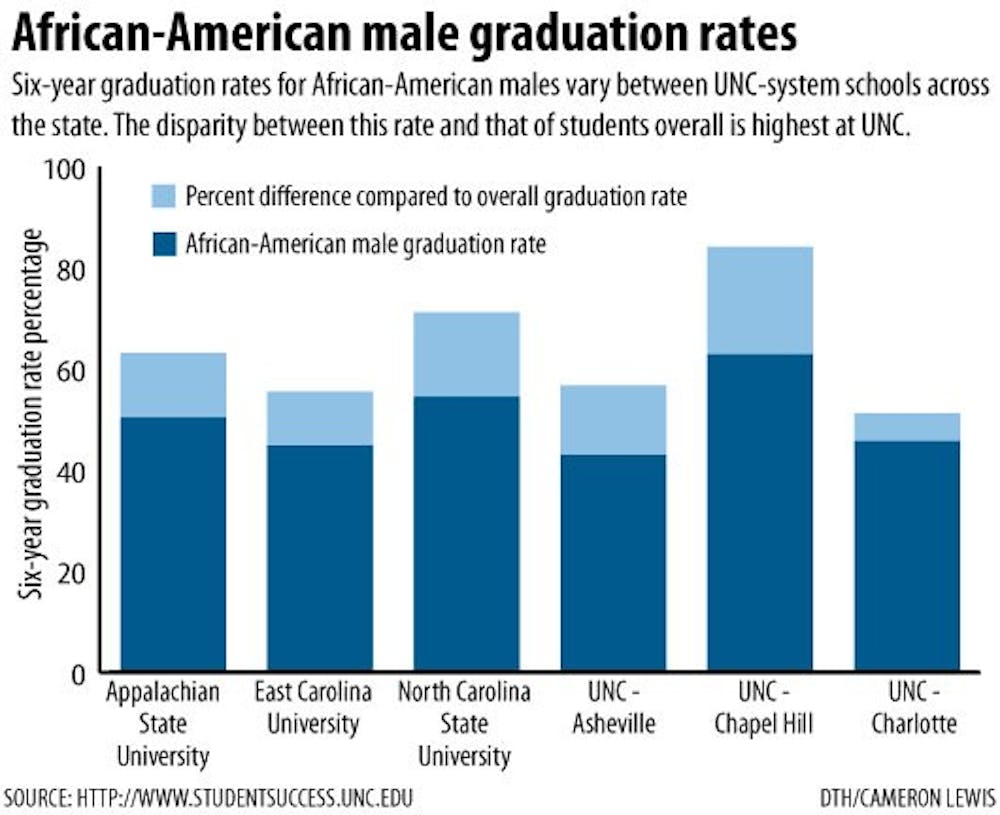Forty years after a major milestone for African-Americans at UNC, the University’s black males are suffering from exceptionally low graduation rates.
Richard Epps, who is now deceased, became the University’s first black student body president 40 years ago today, during a time when barely 60 black students walked the campus, said Pam Campbell-Chisholm, a friend of Epps.
Epps’ success was a testament to UNC’s growing accessibility for African-Americans. But today University administrators have shifted their focus to a different concern — fostering academic success for black males while also maintaining the historic accessibility.
UNC’s four-year graduation rate is just 49.2 percent for black males, compared to a 70.8 percent graduation rate for white males, according to a 2010 study.
Taffye Clayton, who became UNC’s vice provost for diversity and multicultural affairs in February, said the University is looking for solutions.
“We have to study the research that exists and determine what are the models of success that are out there?” she said.
“What are the particular needs of our students and how do we adapt those models so that they work for us with in the context of our students? Our goal is to ensure that they are successful and we provide them every opportunity to be successful,” she said.
But Clayton said the issue clouds not just UNC, but the nation, and the University needs to look for partners around the country to work with on this problem.
“There are national foundations and others who are very interested in the success of students,” she said.



